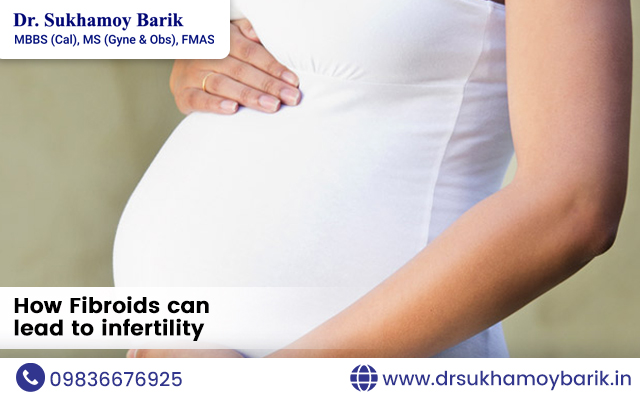Fibroids are benign growths that take root in the uterus. Although they are common, they can cause a range of symptoms and complications, including infertility. Here, the best infertility doctor in Dumdum sheds some light on how it can lead to infertility and what can be done about it.
How can fibroids endanger infertility?
According to the top 10 infertility doctors in Dumdum, fibroids can inflict infertility in the following ways:
- Firstly, fibroids can grow inside the uterus, distorting the shape of the uterine cavity. This can make it difficult for a fertilized egg to implant and grow properly, leading to infertility or miscarriage. It can also block the fallopian tubes, preventing the sperm from reaching the egg and leading to infertility.
- In addition, it can cause abnormal uterine bleeding, which can interfere with the timing of ovulation and decrease the chance of conception. The particular location of the fibroids within the uterus can also affect fertility. The top ten infertility doctors have found that fibroids that grow close to the cervix can potentially interfere with sperm transport.
It is essential to recognize the symptoms of fibroids and seek medical attention if you are experiencing any of them. These symptoms can include heavy menstrual bleeding, pelvic pain or pressure, frequent urination, and difficulty conceiving. If you are struggling with infertility and have been previously diagnosed with fibroids, it is important to work closely with your gynaecologist to develop a treatment plan.
What are the best options for treatments for fibroids-related infertility?
There are several effective treatments available depending on the size, location, and severity of the fibroids. One of the most common treatments is medication, which can help shrink fibroids and reduce symptoms. Hormonal medications can also help to regulate the menstrual cycle and improve fertility.
In cases where medication is not effective, surgery may be necessary to remove the fibroids. In some cases, a procedure called a myomectomy can be done to remove them while preserving the uterus. In other cases, a hysterectomy may be necessary to remove the uterus entirely. However, the best infertility doctors nowadays prefer to conduct laparoscopic or minimally-invasive surgeries that can treat the condition in an outpatient setting and with reduced chances of post-surgical complications.
It is crucial to put yourself under the guidance of an infertility specialist near you to determine the best course of action for your individual situation. Your gynaecologist can assess your symptoms and recommend the most appropriate treatment options for you. In conclusion, fibroids can be a significant cause of infertility for women. If you are struggling with fibroids-related infertility, don’t hesitate to seek professional help from Dr. Sukhamoy Barik. With the right treatment plan, you can overcome these challenges and achieve your dreams of starting a family.
 8282867107
8282867107 sukhamoy83@gmail.com
sukhamoy83@gmail.com
